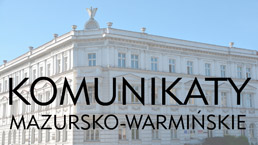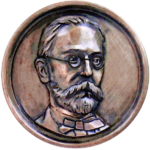Current issue
Online first
Special issues
Archive
About the Journal
Editorial Board
Editorial Council
Reviewers
Editorial guidelines
Publication ethics
Guidelines for reviewing
Remarks on “ghostwriting”
Copyrights and Open Access rule
GDPR Privacy Notice – for the authors of articles sent for publication in the "Komunikaty Mazursko-Warmińskie ("Masuro-Warmian Bulletin")
Contact
Price list
Was Ducal Prussia a tolerant country? The case of the Czech brothers
Online publication date: 2021-12-24
Publication date: 2021-12-24
KMW 2021;315(Komunikaty Mazursko-Warmińskie
Numer specjalny ):147-167
KEYWORDS
TOPICS
ABSTRACT
The Czech brothers came to the Duchy of Prussia at the turn of 1548 and 1549. They settled
mainly in Masuria (Nidzica, Działdowo, Dąbrówno and Olsztynek) and in Powiśle (Kwidzyn,
Gardeja). However, they found themselves in quite difficult living and religious conditions. This
is because their freedom of worship was largely restricted, subordinating them to the Evangelical
Church. From around 1553, the return migration of members of the Unity began, which
ended in the late 1970s. The vast majority of the brothers returned to the Czech Republic or
Greater Poland, only a few were assimilated. The Czech brothers did not play a more serious
role in Ducal Prussia, as in Poland, for example, but they were there for too short a time. It is
timely to now approach the question of religious tolerance in Ducal Prussia. The case of the
Czech brothers demonstrates that it was not actually there, on the contrary – one can speak of
a reverse of tolerance, namely an attempt to confessionalize Augsburg-Lutheran Ducal Prussia.
To put it simply, the term „confessionalization“ means a society and state consisting of one
religion, the influence of religion not only on the spiritual life, but also on all manifestations
of social, cultural and even political life. According to Janusz Małłek, we are dealing with consistent
Lutheran confessionalization in Ducal Prussia until at least the 1620s. Only then was
there a reduction – albeit a moderate one – in religious intolerance. These observations are only
a preliminary attempt to answer the question posed in the title, which undoubtedly requires
much more indepth research.
Share
RELATED ARTICLE
We process personal data collected when visiting the website. The function of obtaining information about users and their behavior is carried out by voluntarily entered information in forms and saving cookies in end devices. Data, including cookies, are used to provide services, improve the user experience and to analyze the traffic in accordance with the Privacy policy. Data are also collected and processed by Google Analytics tool (more).
You can change cookies settings in your browser. Restricted use of cookies in the browser configuration may affect some functionalities of the website.
You can change cookies settings in your browser. Restricted use of cookies in the browser configuration may affect some functionalities of the website.




